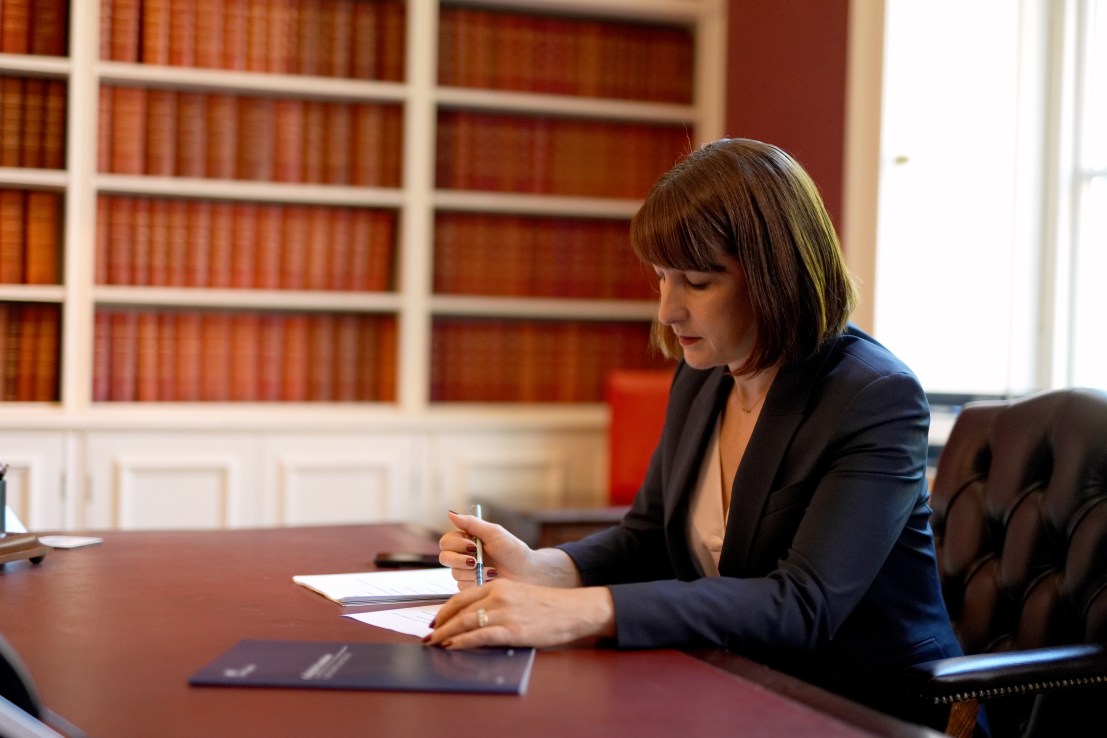Taxes might have to go up by £25bn in Budget, IFS says
Rachel Reeves may have to raise taxes by £25bn in the Budget if she wants to improve the delivery of public services, the influential Institute for Fiscal Studies (IFS) said today. Although the Chancellor looks set to reform the fiscal rules to enable more borrowing for investment, Reeves has committed to meet day-to-day spending out [...]


Rachel Reeves may have to raise taxes by £25bn in the Budget if she wants to improve the delivery of public services, the influential Institute for Fiscal Studies (IFS) said today.
Although the Chancellor looks set to reform the fiscal rules to enable more borrowing for investment, Reeves has committed to meet day-to-day spending out of tax revenue.
This means the challenges for public service funding – challenges which were well publicised before the election – will remain whatever Reeves decides on the fiscal rules.
“The new Chancellor is committed to increasing investment spending, and to funding public services,” Paul Johnson, director of the IFS said.
“To do so, she will need to increase taxes, or borrowing, or both.”
The Chancellor inherited spending plans that imply deep spending cuts for ‘unprotected’ departments, such as justice, transport and home office.
According to the IFS, avoiding these cuts while also funding this year’s public sector pay awards would mean the government needs to top up existing spending plans by £30bn.
This would leave the Chancellor’s current budget commitment on a “knife edge”, the IFS said, noting that it was highly dependent on the Office for Budget Responsibility’s (OBR) forecasts.
However, even this level of funding would likely be insufficient to deliver any significant improvement in public services given the scale of the challenges across different departments, the think tank said.
Increasing funding for day-to-day spending on these ‘unprotected’ departments in line with national income would require a further £17bn in 2028-29. Funding this top-up out of tax revenue would require the government to raise taxes substantially.
“If she wants to keep spending rising with national income, she could need up to a total of £25bn of tax increases,” the IFS said.
Johnson warned that the challenges facing public services would likely get worse over the course of the parliament.
“Pressures on health and pension spending will continue to increase, and revenues from fuel and tobacco duties will fall. That will make remaining on course for current budget balance harder over the course of this parliament,” he said.
The IFS’s estimates were based on economic forecasts from Citi and were highly sensitive to different assumptions.
In a more optimistic scenario, in which growth picked up more than expected, tax rises would be unnecessary for a balanced budget. However, in a more pessimistic scenario, the Treasury would need to hike taxes by nearly £50bn in order to balance the books.
“If we are to lift trend growth, it is essential this opportunity is seized,” Benjamin Nabarro, chief UK economist at Citi, said.
Responding to the comments from the IFS, a Treasury spokesperson said: “Despite uncovering a £22bn black hole in our public finances we are focused on making this the most pro-growth Treasury in history, built on the rock of economic stability, including robust fiscal rules that were set out in the manifesto. That is how we will fix our public services and deliver on the promise of change.”


